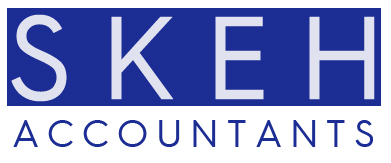
03 May Accountancy explained for young students
Accounting can be a daunting subject for many adults, let alone kids. However, it is a fundamental aspect of managing money and understanding finances. That is why we felt the need to have Accounting explained in a simple manner
In this guide, we will aim to simplify accounting concepts and explain them in a way that is accessible and engaging for kids.
What Is Accounting?
Accounting is the process of keeping track of money, including how much is coming in and going out. Furthermore, it involves recording and organizing financial information to help individuals and organizations make informed decisions about their finances.
Why Is Accounting Important?
Accounting is important because it helps us understand how much money we have, how much we owe, and how much we are spending.
It is essential for businesses to keep track of their finances, so they know how much money they are making and can plan for the future. Accounting is also important for individuals, as it helps us budget and make wise financial decisions.
Types of Accounting
There are two main types of accounting: financial accounting and management accounting.
- Financial accounting involves recording and reporting financial information to external stakeholders, such as investors and creditors.
- Management accounting, on the other hand, involves using financial information to make internal business decisions, such as pricing strategies and cost analysis.
Accounting Terms
To have Accounting explained in a simple manner for kids and adults we need to know some basic terms. Therefore, here are some of the basic Accounting terms.
1. Definition of Accounting
When a company makes money, it has to keep track of where that money came from and where it goes.
So, this is called Accounting.
2. Accrual Accounting
A method of accounting that records transactions when they happen, not when the money is received or paid.
3. Cash Basis Accounting
A method of accounting that records transactions when the money is received or paid, not when they happen.
4. Income
The money you earn from doing work or selling something.
5. Expenses
The money you spend on things you need to run your business.
6. Profit
The money you have left over after you subtract your expenses from your income.
7. Loss
When your expenses are more than your income.
8. Assets
Things you own that have value.
9. Liabilities
The money you owe to others.
10. Equity
The difference between your assets and liabilities.
11. Revenue
The total amount of money coming into your business.
12. Accounts Payable
The money you owe to others for goods or services you’ve received but haven’t paid for yet.
13. Accounts Receivable
Money others owe you for goods or services you’ve provided but haven’t been paid for yet.
14. Debits and Credits
These marks are called debits and credits, and they help the company make sure it has the right amount of money and things.
15. Income Statement
A financial statement that shows your revenue, expenses, and net income over a period of time.
16. Statement of Cash Flows
A financial statement that shows your revenue, expenses, and net income over a period of time.
17. General Ledger
When the company buys or sells something, or pays or gets paid, it has to make two marks in its special book called the general ledger.
18. Balance Sheet
It shows how much a company has, how much it owes, and how much is left for the owner of the company.
19. Charts of Accounts
The company also has a list of all the things it can put in its special book, and each thing has its own special number.
So, this is called the chart of accounts.
20. Cost Of Goods Sold
The cost of the materials used to make what you’re selling.
21. Operating Expenses
The costs of running your business, not including the cost of goods sold.
22. Gross Profit
The amount of money you have left over after subtracting the cost of goods sold from revenue.
23. Net Income
The amount of money you have left over after subtracting operating expenses from gross profit.
24. Depreciation
The decrease in the value of an asset over time.
25. Tax
Tax is money you pay to help the government do things like build roads, and schools, and keep people safe.
The Bottom Line – Importance of Having Accounting Explained in A Simple Manner for Everyone
In conclusion, accounting is a crucial aspect of managing money and understanding finances.
Therefore, by having accounting explained in a simple manner and simplifying accounting concepts and explaining them in an engaging way, kids can start to develop an understanding of how money works and how to make wise financial decisions.
Remember, the earlier kids start learning about accounting, the better equipped they will be to manage their finances in the future.
Finally, If you want to receive more finance tips like this, feel free to call us: +44 121 212 0101
Caroline Street, Birmingham, United Kingdom, B3 1UF

Sorry, the comment form is closed at this time.